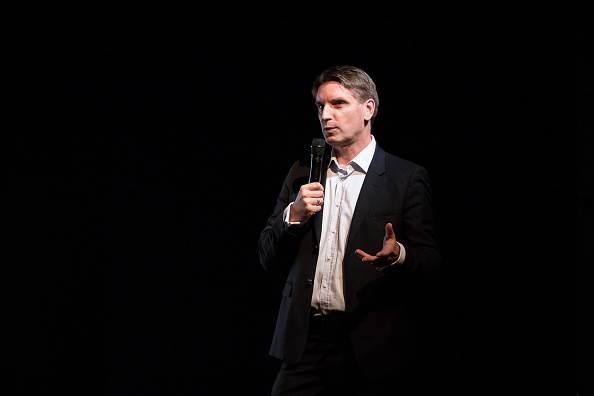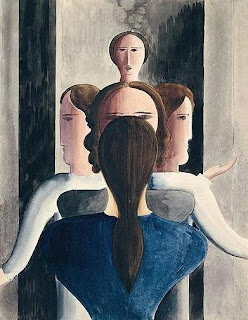Chyba to już moja ostatnia refleksja na temat nieszczęsnego narodu, do którego należę.
Oto dane mi jest, pod koniec życia, być świadkiem , po raz kolejny w naszej historii zaistniałego aktu, świadczącego o skłonności (gotowości) do autodestrukcji, do chęci samozagłady.
Nie mogę, w żaden sposób nie mogę pojąć dlaczego połowa narodu, mego narodu, moi współrodacy, jakby oślepła.
Polska, nasza ojczyzna, po stu kilkudziesięciu latach nieistnienia – z krótkim , zaledwie dwudziestoletnim epizodem niepodległości, pomiędzy dwoma światowymi wojnami – nareszcie, co było marzeniem pokoleń, naprawdę stała się wolna.
I bezpieczna.
No bo, co było darem losu, znalazła się w wielkim obronnym sojuszu państw Zachodu, w NATO, i w wielkim spójnym, gotowym na rywalizację i konfrontację z resztą świata błogosławionym organizmie ponadnarodowym, w Unii Europejskiej.
I oto 18 maja 2025 roku, za sprawą pierwszej tury wyborów prezydenckich, dowiedziałem się, że co najmniej połowa narodu, owe wymienione wyżej dary losu, a zwłaszcza członkostwo w Unii Europejskiej, ma za nic.
Połowa mych rodaków dała się otumanić demagogom, po części być może agentom wrogiego nam mocarstwa, a po części nieświadomie interesom tego mocarstwa służącym, tak zwanym „użytecznym idiotom”.
Oto blisko jedna trzecia wyborców skłonna była powierzyć urząd prezydenta Najjaśniejszej Rzeczypospolitej człowiekowi głoszącemu poglądy skrajnie szkodzące interesom ojczyzny.
Wszak Karol Nawrocki chce ignorować Unię Europejską i miast umacniania w niej naszą pozycji, bycia w pierwszej trójce decydujących, podsyca, ze wszech miar szkodliwe, antyniemieckie fobie.
Judzi też, wbrew najbardziej żywotnej naszej racji stanu, przeciw Ukraińcom.
A przecież, na miłość boską, nie można tego nie widzieć, że mając u steru państwa tak mocne indywidualności jak obecny premier, który przewodził Unii, Donald Tusk, podziwiany za swe zdolności i dokonania dyplomatyczne minister spraw zagranicznych, Radosław Sikorski i wreszcie (oby wybrany, bo jeśli nie, to cała nasza pozycja upada) znany w gronie przywódców, prezydent Rafał Trzaskowski.
Że mając takich ludzi w kierownictwie Unii, moglibyśmy mieć rzeczywisty wpływ na los Europy, a zatem na nasz – zrozumcie ludzie wreszcie! – na nasz los, Polski.
To co wyżej, tyczy także wyborców Konfederacji.
Tych, co dla mnie niepojęte, młodych ludzi, którzy, jakby nie biorą pod uwagę, że gdyby wprowadzić program tejże Konfederacji w życie, to skończyłyby się swobodne podróże po świecie, zaznalibyście, młodzi entuzjaści Konfy, upiornych doświadczeń wystawania przed ambasadami po wizy.
I nie byłoby już żadnych Erazmusów, żadnych studiów na zagranicznych uczelniach.
Zatem chłopcy i dziewczęta, opamiętajcie się!
No bo czy pragniecie studiów płatnych?
I czy chcecie tępić pedałów i Żydów, jak tego sobie życzy wasz idol, Mentzen?
I czy – jak on – uważacie, wy, dziewczyny i kobiety i wy, ich partnerzy i mężowie, że gwałt to taka trochę nieprzyjemność, ale rodzić trzeba?
Moi młodzi, otumanieni, zaczadzeni – no bo chyba tak – przyjaciele.
Czy chcecie, naprawdę, takiej Polski jaką mogą wam urządzić panowie Mentzen czy Nawrocki.
Chyba jednak nie.
Zatem, proszę, opamiętajcie się, skupcie się, pomyślcie – i idźcie zagłosować na wciąż nie starego, a, co się czuje, młodego duchem, a przy tym bardzo doświadczonego, Rafała Trzaskowskiego.
Cenię i podziwiam wasz bunt.
Nie tak dawno byłem przecież młody.
I chcę wierzyć, że wasze pokolenie uczyni ten kraj lepszym, doskonałej rządzonym.
Ale uwierzcie mi, co innego buntować się w państwie demokratycznym, wolnym, w jakim żyjecie w tej chwili, a zupełnie co innego w takim, który chcą wam zafundować, wasz idol, a już zwłaszcza (uwaga, żebyście przez pomyłkę nie oddali na niego głosu!) Karol Nawrocki.
Do tych, którzy oddali swój głos na Grzegorza Brauna, nie jestem pewien czy powinienem się zwracać.
Zgroza, gdy pomyślę.
Otrzymał przecież ponad sześć procent .
Ci, którzy oddali na niego swój głos, zagłosowali przecież na faszystę. Tak, tak, nie muszę się obawiać procesu. Program tego pana jest dużo „śmielszy” niż Czarnych Koszul prowadzonych w marszu na Rzym przez ich wodza, duce, Benito Mussoliniego.
Powszechnie znane jest powiedzenie , że „Polak mądry po szkodzie”.
Pasuje jak ulał do obecnej sytuacji.
Bo ja wiem jak potoczy się nasza historia, jeśli – co nie daj Boże – urząd prezydenta obejmie Karol Nawrocki. Wiadomo, że będzie on blokował wszelkie próby ozdrowienia, oczyszczenia państwa.
Jeśli dojdzie do tak oczekiwanych procesów i do , prawdopodobnie, skazań winnych nadużyć (korupcji, złodziejstwa na wielka skalę) funkcjonariuszy pisowskiego reżimu, czyli „mafijnego państwa”, to przecież z góry wiadomo, że prezydent ten wszystkich, choćby najbardziej winnych, uniewinni.
I zrobi wszystko aby udaremnić rządowi jakiekolwiek ozdrowieńcze reformy.
Pozostawione przez rządy PiSu struktury pomyślane jako swego rodzaju pułapki dla następców, przy pisowskim prezydencie na urzędzie, będą nadal działać.
Ba, uaktywnią się.
Nie da się przeto uzdrowić państwa i przywrócić praworządności.
Obecna ekipa skazana będzie na przegraną w nadchodzących wyborach parlamentarnych.
No i wtedy na dobre już znajdziemy się w autokratycznym państwie, które (zgodnie z marzeniami prezesa) wywalczy sobie „suwerenność”.
Jeśli nawet oficjalnie nie wyjdziemy z Unii, to faktycznie przestaniemy w niej istnieć.
Przechodząc etapy węgierski czy słowacki, skończy to nieszczęsne państwo może nie jak Białoruś, ale bardzo podobnie.
Nareszcie, zgodnie z oczekiwaniami pisowskich „patriotów”, jako – ich zdaniem – państwo suwerenne.
A zatem w desperacji i poczuciu beznadziei chciałbym zapytać, wołając wielkim głosem: Czy tego chcecie moi rodacy, którzy zamierzacie 1 czerwca oddać swój głos na Karola Nawrockiego???Zastanówcie się, czy tego właśnie chcecie?
Tylko cóż…mogę sobie wołać.
I tak mnie nie usłyszą.
Nie czytają przecież Gazety Wyborczej.
Chyba, że ktoś im ten tekst pokaże. Tylko, że wówczas, jeśli nawet przeczytają, to mechanizm wyparcia sam się włączy.
Zaprzeczą.
Bo „Polak mądry - dopiero - po szkodzie”.
Tak było, na przykład, z Konstytucją 3 Maja.
Wspaniała. Potrzebna.
Tylko , że powstała za późno-„po szkodzie”….
No to na koniec apel do tych, którzy, jak sadzę, chcą być mądrzy „przed szkodą”, do kandydatów Lewicy na urząd Prezydenta, do Magdaleny Biejat i Adriana Zandberga.
Drodzy Moi, bliscy mi w poglądach, bo, wyznam, zwykłem mówić o sobie, że serce mam po lewej stronie.
I pewno w kraju o ustabilizowanej demokracji, głosowałbym na socjaldemokratów.
Choć do partii, żadnej, nie zapisałbym się.
Cenię Wasze programy. Są mi bliskie. Ale, niestety, muszę wyznać, że jakoś zawiodła mnie Pani, Pani Magdaleno. A bardzo Panią cenię.
Głęboko wierzę w Pani prawość i uczciwość.
I życzę Pani udanej kariery w polityce. Ale nie należało – gdy była Pani zapytana o to czy wezwie Pani swych wyborców, by głosowali na Rafała Trzaskowskiego – odpowiadać, że najpierw musi Pani z nim porozmawiać.
Bo słusznie, powinna Pani z nim rozmawiać.
Ale wobec tego, że OJCZYZNA W NIEBEZPIECZEŃSTWIE, nie należy, ba, nawet nie godzi się, stawiać warunków.
Jesteście wszak po jednej stronie.
I obydwoje, mam nadzieje, że wraz z większością narodu, obawiacie się najgorszego, które niestety, może nadejść.
A teraz słowo do Pana Zandberga. Szanuję Pana nieprzejednaną postawę.
Choć, proszę mi darować, nieco przypomina mi Pan takich skrupulatnych uczestników kółek marksistowskich konspiratorów z początków dwudziestego wieku, niesłychanie dbałych o wierność doktrynie.
Ale nie wątpię w Pańską uczciwość i dobre intencje.
I potrzebę służenia ludziom pracy. Tylko pozwalam sobie zwrócić pańską uwagę, że pańskie „bycie w opozycji wobec każdej władzy” ma sens i może być skuteczne, gdy władza ta jest, może nieudolna, ale demokratyczna. W reżimie pisowskim, który zmierza ku temu by być czysto autorytarnym, pod prezydenturą Nawrockiego, słabe są szanse aby Pan coś zdziałał. Zapewniam, lepiej buntować się przeciw „libkom”.
I apeluję, by Pan namawiał do głosowanie na Trzaskowskiego.
Stanisław Brejdygant, Polak, lat 89.










